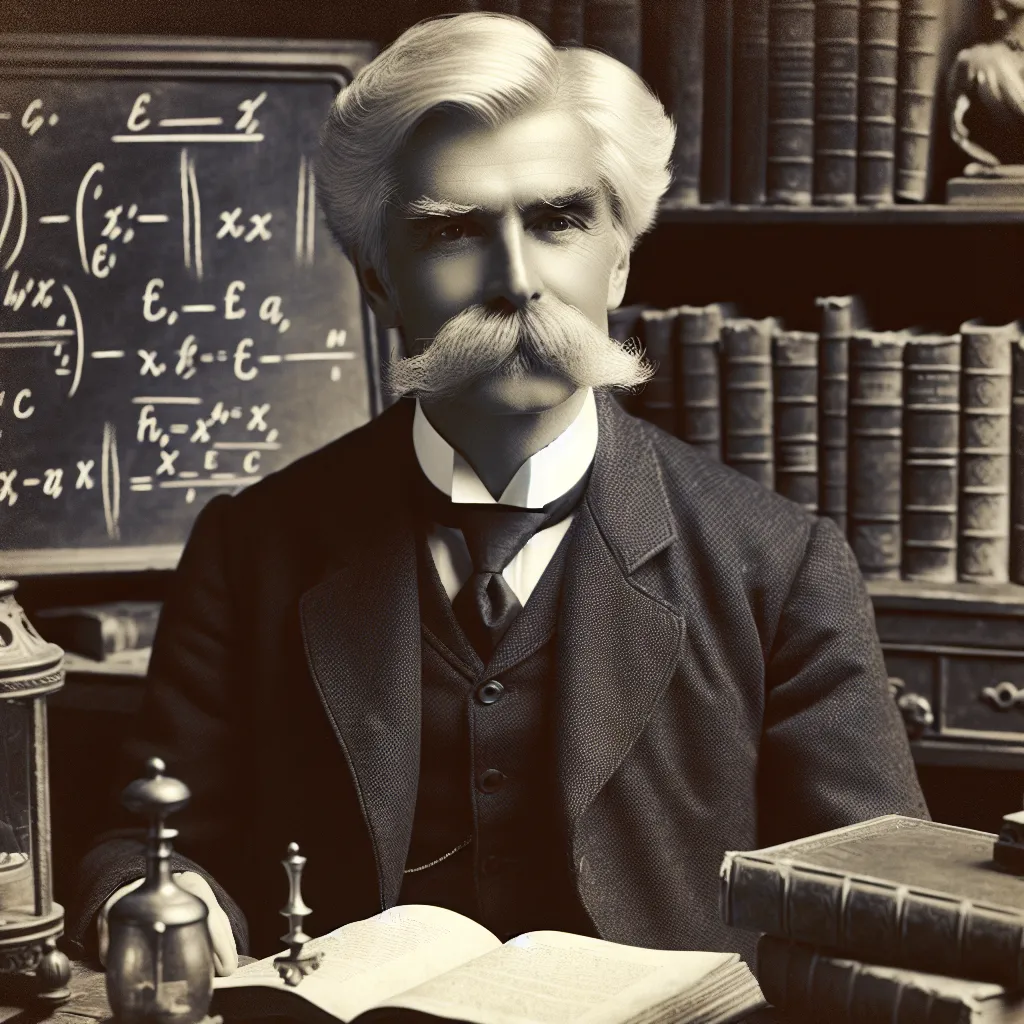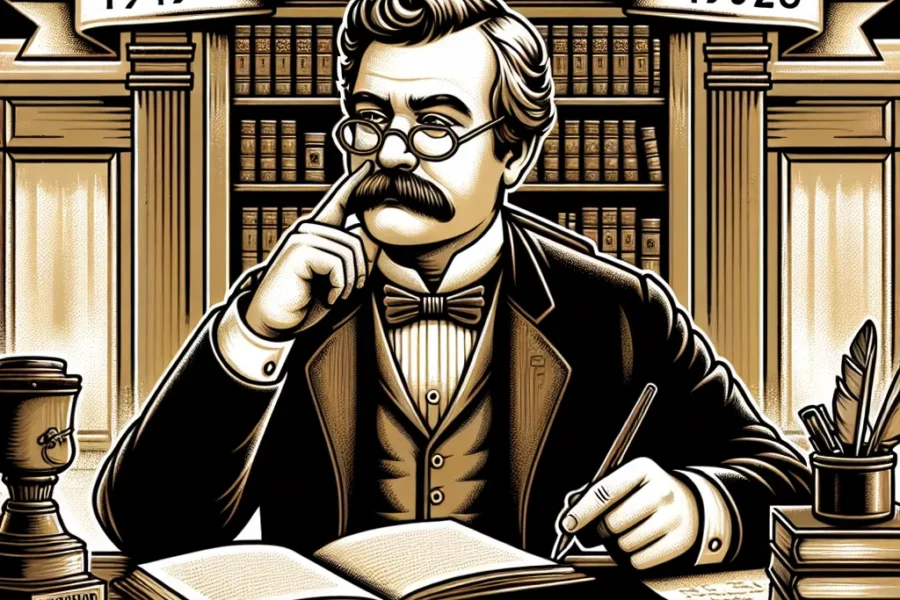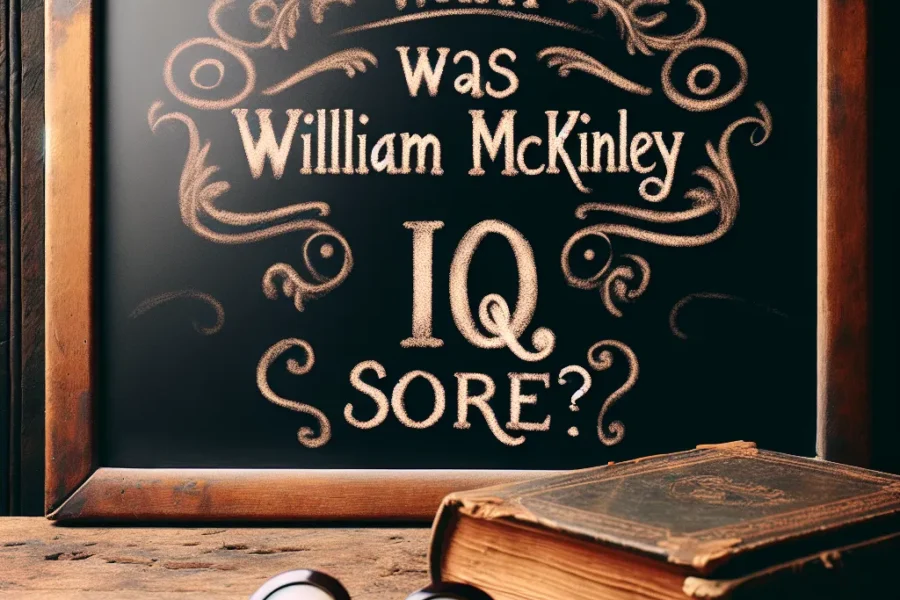Benjamin Harrison, the 23rd President of the United States, is a figure who has often piqued the curiosity of history buffs and scholars alike. While his political life and accomplishments are well-documented, students of history occasionally find themselves asking an intriguing, albeit tangential, question: What was Benjamin Harrison’s IQ score?
If you are looking for legitimate IQ Tests which pass the entry bar for Mensa, see our IQ Tests.
To delve into this question, it’s worth understanding what an IQ score measures. IQ, or Intelligence Quotient, is a metric designed to evaluate a person’s intellectual capabilities in relation to the general population. Most standardized IQ tests are rigorously developed to assess various cognitive functions, such as logic, reasoning, and problem-solving. However, the concept of IQ as we understand it today didn’t exist during Harrison’s time. Therefore, measuring his IQ is speculative at best and requires some contextual and historical considerations.
Born on August 20, 1833, in North Bend, Ohio, Benjamin Harrison came from a prominent family lineage. His grandfather, William Henry Harrison, had also served as President, securing a notable legacy. Harrison was well-educated, having attended institutions such as Farmers’ College in Cincinnati and Miami University in Oxford, Ohio. He graduated near the top of his class in 1852, displaying early signs of his keen intellect.
After completing his education, Harrison pursued a career in law, quickly establishing a reputation as a skilled and astute lawyer. His legal acumen translated seamlessly into his political endeavors, eventually leading him to the U.S. Senate and then to the presidency. These achievements naturally lead some to speculate on his intellectual capabilities, often highlighting his quick wit, attention to detail, and decision-making prowess.
Though we can’t exactly quantify Harrison’s intelligence through modern IQ scores, his academic and professional achievements provide strong indicators of his intellectual abilities. His speeches and writings reveal a strong command of the English language, a depth of understanding on complex issues, and a highly analytical mind. His role in advocating for significant legislation, such as the Sherman Anti-Trust Act and the McKinley Tariff, further illustrates his capacity for strategic thought and policy-making.
The development of IQ testing began in earnest in the early 20th century, thanks to the efforts of psychologists like Alfred Binet and Lewis Terman. This was long after Harrison’s time, meaning contemporary measurements can’t retroactively be applied to historical figures with any degree of accuracy. Consequently, any assertion regarding Harrison’s IQ score would be purely speculative. Nonetheless, his intellectual legacy can be inferred from the sum of his educational background, professional achievements, and the enduring impact of his political career.
Let’s explore some specific contributions Harrison made during his presidency that can offer more insight into his intellectual capacity. Harrison was an advocate for African American civil rights, at a time when such stands were fraught with political risk. He supported the Federal Elections Bill of 1890, designed to protect the voting rights of African Americans in the South, demonstrating not just moral courage but strategic legislative acumen.
Additionally, Harrison was instrumental in the expansion of the U.S. Navy, transforming it into a modern sea-power capable of projecting American influence globally. This foresight into national security and international relations showcases a nuanced understanding of global dynamics, indicative of a strong and strategic intellect.
Moreover, his economic policies, particularly those involving tariffs and trusts, were reflections of a complex grasp of economic theories and their social implications. While his policies were often controversial and met with significant opposition, the thought processes behind them were intellectually robust, catering to the economic doctrines and challenges of his time.
Interestingly, Harrison’s post-presidency years also provide a window into his intellectual pursuits. He returned to his law practice, traveled extensively, and even served as a delegate to the First Hague Conference in 1899, where he advocated for international law and arbitration. Such activities indicate a lifelong commitment to intellectual and civic engagement that underscores the depth of his cognitive abilities.
When considering whether modern politicians or leaders possess high IQs, it’s essential to differentiate between intellectual capability and effective leadership. Harrison consistently demonstrated that he possessed both, as evidenced by his legal proficiency, legislative initiatives, and strategic governmental reforms.
Personal traits, attitudes, and even adversities also compound the measure of a person’s full intellectual portrait. Benjamin Harrison’s personal letters, diaries, and the recorded anecdotes from his contemporaries suggest a man of reflection, critical thinking, and often, ethical consideration. This encompasses a kind of intelligence that goes beyond raw cognitive processing—a holistic intellect intertwined with wisdom and empathy.
While we can never pinpoint an exact IQ score for Benjamin Harrison, the myriad achievements throughout his life offer substantial evidence of a highly capable and intelligent individual. His legacy as a leader who navigated complex national and global issues, his legal acumen, academic achievements, and moral actions form a composite picture of a man whose intellect was undoubtedly impressive.
Thus, while we may not be able to assign a numerical IQ value to Benjamin Harrison, his contributions to law, politics, and civil rights paint a portrait of a president whose intellectual faculties were formidable. History provides us with numerous ways to appreciate the intellect of someone like Harrison, not limited to but certainly encompassing the attributes we might measure today through IQ tests. His enduring legacy serves as a testament to the breadth and depth of his intelligence, both in his professional duties and personal endeavors, making him a significant figure whose intellectual heritage we can continue to admire and study.



Leave a Comment